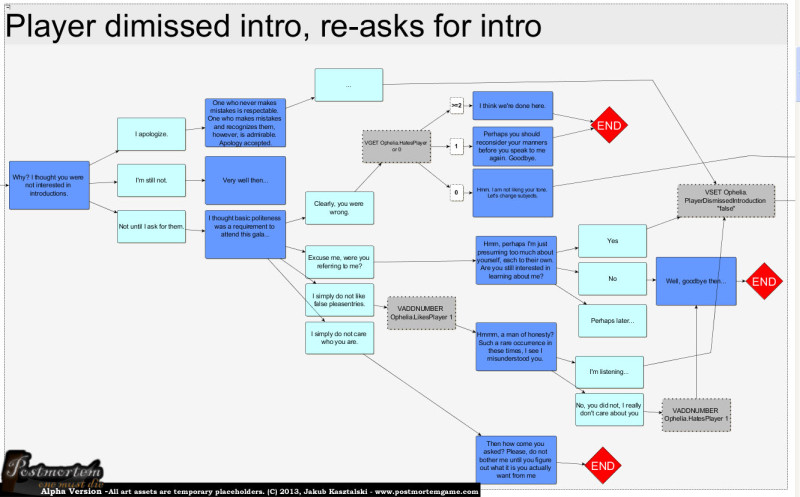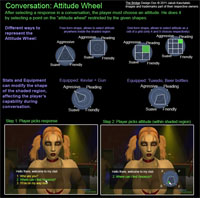Postmortem was not the game I initially wanted to make – it (de)evolved from many over-ambitious designs and prototypes inspired by studies in ethnic conflict and a book a friend lent me. But my goals never changed.


Postmortem was not the game I initially wanted to make – it (de)evolved from many over-ambitious designs and prototypes inspired by studies in ethnic conflict and a book a friend lent me. But my goals never changed.

Item highlight, arrows or contextual controls make “hardcore” gamers rage but developing my game I learned they’re not always about dumbing, but accessibility.
Continue reading “Case for Dumbing Down – because others deserve to enjoy games too” →

Developing a game you inevitably face frustrating setbacks that destroy your motivation. Here’s a shout-out to my fellow devs and bloggers who give me the much needed reboot!
Continue reading “Curing GameDev blues – the other Dev Blogs that inspire me” →

Video of a chaotic but functional San Fran street from 1906 – lesson about game AI agents, social commentary on governments, or just a sign my coffee is a little too strong on this 9:35am Sunday morning?

Developing my indiePostmortem, I’ve been slowly growing a list of programming libraries, art assets, and content-creation tools; hopefully it is useful to you!
Continue reading “Tools and resources for making an indie game” →

Recent years brought us many “artsy” narrative-driven games with varying degrees of interactivity. But as the genre matures, I feel the gameplay is increasingly getting in the way of enjoying the games.
Continue reading “How much “gameplay” is too much in narrative games?” →

I finally let someone else play my in-development Postmortem game, as I set next to them silently, grabbed a notepad, and watched. After an hour and two pages of notes, I learned a lot not just about my game, but game design itself!
Continue reading “What I learned from the first playtest of my game” →

When a player chooses a play style in a game, he is presented with a multitude of options. A “fighter” can use many weapons, parry, dodge, and use potions or magic scrolls. A “thief” can usually sneak around, hide in shadows, use sound cues, distract the enemy, turn off lights or use gadgets. Even in non-RPGs, such as a racing game, one can change their car, tweak the engine, ram into enemies or drive peacefully. And he can do it all dynamically, at any point in the game, constantly adjust and re-adjusting his strategy.
But a “conversationalist” – what can he do besides merely picking from one of the few predefined responses?